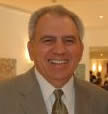Foreword
The Value of the Transatlantic Partnership
 |
General George Joulwan Former Supreme Allied Commander, Europe |
I have been asked to introduce General Jim Jones and to make a few brief remarks with regard to the workshop. I am going to do so from the perspective of one who has been involved in Europe for over 45 years and who believes in the value of the transatlantic partnership.
As has been the case since the inception of this workshop 23 years ago, today we find our mutual security and way of life challenged globally. Three decades ago it was the Cold War and the threat of Communism and nuclear war. Fifteen years ago it was the post-Cold War period and the threat of ethnic strife in the Balkans and tribal warfare in Africa. Today it is fanatical religious terrorism and the proliferation of weapons of mass destruction that threaten our democracies and way of life.
How we as an alliance and an international community confront these latest threats will, in my opinion, determine the quality of life for our children and grandchildren and their children. And in my opinion there is no better forum to address these issues—candidly, honestly, and directly—than this workshop.
In the last 15 years, we have witnessed a true transformation of NATO. The requirements for collective defense and collective security now go well beyond the borders of the Alliance. This workshop has provided the venue for such discussions, from the immediate aftermath of the collapse of the Berlin Wall and the Iron Curtain to the building of a new Europe whole and free, democratic and prosperous, and with a deep respect for the dignity and worth of each individual citizen, to the challenges of the 21st century.
It was through this workshop that former adversaries had a chance to become partners and allies and participate in the debate that would shape their future. In the 1994 workshop, we discussed for the first time the term “the new NATO.” It was here that we debated the criteria for membership and developed military-to-military relationships between former adversaries. As a result, 36 nations, including Russia, joined the NATO effort to bring peace to Bosnia and the Balkans—and we succeeded! It was also here that we confronted directly the need for NATO and the European Union to work together to meet the challenges of the 21st century. And it continues to be here, in May 2006, that military leaders, ambassadors, ministers, politicians, and leaders of European and U.S. defense industries come together to address the needs of the new NATO.
Today NATO is on the verge of committing its sons and daughters and its political credibility to the war in Afghanistan. The one who will have overall operational control of the Afghan operation is the current Supreme Allied Commander Europe, General Jim Jones. General Jones has been our speaker before but never at a more important time for NATO, Europe, and indeed the world. I have known him for many years, since, as a brigadier general, he was responsible for airlift operations into Sarajevo, relief for the Kurds in northern Iraq, and humanitarian efforts in Africa. He has held command positions at every level in the Marine Corps and served as Legislative Liaison to the Congress, military assistant to the Secretary of Defense, and the Commandant of the Marine Corps. He has been a superb Supreme Allied Commander Europe since January 2003. And he has a great asset for being SACEUR—because he was raised in France and Belgium he speaks fluent French! Most important, he has both moral courage and respect for political control of the military, but is not afraid to stand up and be counted on difficult issues. It is a great pleasure to welcome the 15th Supreme Allied Commander, Europe General Jim Jones.
|
|
